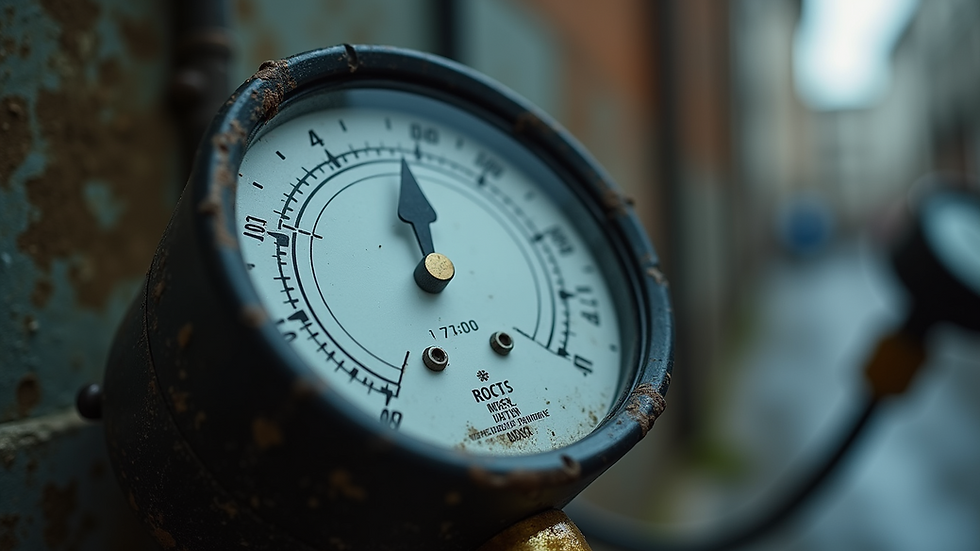How to Prevent Common Plumbing Issues
- affordableplumbing41
- May 19, 2025
- 4 min read
Plumbing issues can cause significant disruptions in our daily lives. Whether it is a leaky faucet, a clogged drain, or a burst pipe, these problems can lead to frustration and costly repairs. The good news is that many of these issues can be prevented with a little knowledge and proactive measures. In this blog post, we will discuss common plumbing issues and practical tips to prevent them.
Common Plumbing Issues
Understanding common plumbing issues is the first step in prevention. Some prevalent problems homeowners face include:
Leaky Faucets: A dripping faucet can waste gallons of water a year, not to mention the annoying sound it makes. Leaks often arise from worn-out washers or seals.
Clogged Drains: Debris such as hair, soap residue, and food particles can accumulate and cause blockages, leading to slow drains or complete stops.
Running Toilets: This issue usually indicates a malfunctioning flapper or fill valve. A running toilet can waste a significant amount of water if not addressed.
Burst Pipes: In cold weather, pipes can freeze and burst, leading to extensive water damage.
Low Water Pressure: This can be a result of mineral buildup in pipes, leaks, or issues with the municipal water supply.
By being aware of these issues, you can take steps to mitigate their occurrence.

Tips to Prevent Plumbing Issues
Prevention is key when it comes to plumbing problems. Here are some actionable tips to keep your plumbing system in tip-top shape:
Regular Maintenance
Scheduling regular inspections and maintenance is vital. A qualified plumber can help identify potential problems before they escalate. Simple tasks like checking pipes for leaks, inspecting water heaters, and cleaning drains can save homeowners from significant repairs down the line.
Be Cautious with What Goes Down the Drain
One of the leading causes of clogged drains is improper disposal of waste. Avoid flushing items like paper towels, feminine hygiene products, and food scraps down the toilet. Use drain covers to catch hair and food particles, and run hot water through drains regularly to help prevent buildup.
Insulate Your Pipes
For those living in colder climates, insulating pipes can be a game-changer. Foam insulation sleeves can help protect pipes in unheated areas from freezing. Keep your home's thermostat consistent during cold spells, and let faucets drip slightly on extremely cold nights to prevent freezing.
Install Water Softener
Hard water can add mineral buildup in your pipes, leading to low water pressure. Installing a water softener can help reduce this buildup, extending the lifespan of your plumbing system.
Check Water Pressure
High water pressure can damage pipes and lead to leaks. Use a pressure gauge to check your home's water pressure, and adjust it if necessary. Consult a professional if you notice fluctuating water pressure.

Is Roto Rooter Affordable?
Many homeowners wonder about the cost of plumbing services, including well-known companies like Roto Rooter. The cost of services can vary significantly based on the type of issue, the time of day, and your geographic location. Generally, Roto Rooter may charge higher rates compared to local plumbing companies offering competitive pricing.
When seeking affordable services, it is beneficial to do your research. Comparing estimates and reading customer reviews can lead to the best choices for reliable plumbing help without breaking the bank. You might find that local companies, like affordable plumbers, offer competitive rates and exceptional service.
Know the Location of Your Shut-Off Valves
Having knowledge of your home’s main shut-off valve can prevent extensive water damage in case of a plumbing emergency. In the event of a burst pipe or severe leak, knowing where the shut-off valve is located can buy precious time while waiting for professional assistance.
Use Eco-Friendly Cleaning Solutions
Chemical drain cleaners can damage pipes over time, leading to more significant issues. Instead, consider natural solutions such as baking soda and vinegar to clean your drains. Regularly using these eco-friendly solutions can keep pipes clear without the harmful side effects of harsh chemicals.

Educate Your Family
Creating a plumbing-friendly home involves everyone in your household. Educate your family members about what can and cannot be flushed down the toilet or poured down the sink. Establishing good habits early on can save everyone from future plumbing headaches.
Regularly Inspect Washing Machines and Hoses
Washing machines are often overlooked when it comes to plumbing maintenance. Inspect the hoses regularly for signs of wear or bulging. Replace old hoses with new, reinforced ones to prevent leaks and potential flooding. Additionally, ensure that the machine is leveled to avoid vibrations that could lead to hose damage.
Install a Sump Pump
For homeowners in flood-prone areas, installing a sump pump can be an excellent preventive measure. This device helps keep your basement dry by automatically pumping out excess water during heavy rains. Regular maintenance of the sump pump is also essential to ensure its efficiency.
Final Thoughts
By staying informed and following these preventative measures, you can significantly reduce the risk of common plumbing issues in your home. Regular inspections, smart disposal practices, and family education can go a long way in protecting your plumbing system. Remember that accidents can happen, and knowing when to reach out for help is essential. Whether it’s a small leak or a major plumbing issue, having contacts for reputable and affordable plumbers can save you from a plumbing disaster.
Taking these steps today can lead to peaceful, worry-free living tomorrow. Happy plumbing!


Comments